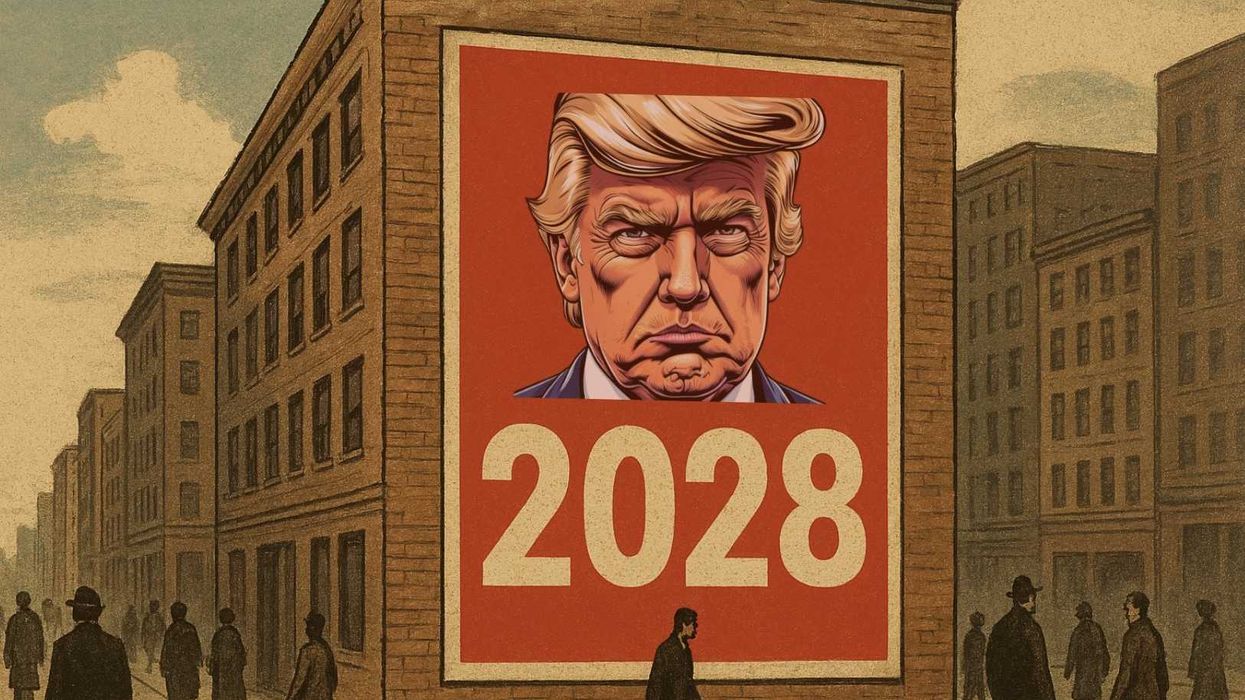When Steve Bannon says Donald Trump should serve a third term, he’s not joking. He’s not even being coy. He’s laying ideological groundwork for a constitutional stress test that could redefine the limits of executive power in the United States.
Bannon was asked how Trump could legally serve a third term. “There’s many different alternatives,” Bannon told The Economist. "Trump is going to be president in '28, and people ought to just get accommodated with that. At the appropriate time, we'll lay out what the plan is."
Bannon didn’t elaborate. He didn’t need to. The ambiguity is the point. It invites speculation, fuels loyalty, and dares the public to imagine a reality where rules bend to will.
- YouTube youtu.be
Speaking to reporters aboard Air Force One on his way to Japan from Malaysia, Trump did not rule out seeking a third term. "All I can tell you is that we have a great group of people, which they don't," he added, referring to Democrats.
The Trump Organization has already begun selling “Trump 2028” merchandise, including hats that reportedly appeared in the Oval Office during a pre-shutdown meeting with congressional leaders. This symbolic gesture has fueled speculation that Trump is not merely entertaining the idea but actively laying the groundwork for a third campaign.
House Minority Leader Hakeem Jeffries (D-N.Y.) expressed concern over the optics of Trump’s third-term signaling. According to The Hill, Jeffries confronted Vice President J.D. Vance about the Trump 2028 hats in the Oval Office, to which Vance replied, “No comment”.
Can Trump serve a third term as US president? The legal and political feasibility of such a move remains murky.
The 22nd Amendment prohibits any person from being elected president more than twice. Ratified in 1951 after Franklin D. Roosevelt’s four-term presidency, it was designed to prevent exactly this kind of power consolidation. But Bannon and others in Trump’s orbit aren’t interested in constitutional clarity. They’re interested in constitutional elasticity.
Legal experts and constitutional scholars have warned that any attempt to circumvent the 22nd Amendment would trigger a constitutional crisis. “The amendment is clear,” said Professor Linda Chavez of Georgetown Law. “Any effort to reinterpret or bypass it would undermine the rule of law and democratic norms.”
The idea that Trump could run again in 2028 is legally implausible. But in today’s political climate, implausibility is no longer a deterrent—it’s a dare. The real danger isn’t that Trump will succeed in securing a third term. It’s that the conversation itself normalizes the erosion of constitutional boundaries.
Bannon has gone further, framing the stakes in existential terms. “God forbid we don’t win in ’28, President Trump is going to prison,” he said on Real America’s Voice. “We’re at war.” This isn’t just rhetoric—it’s a narrative of persecution, designed to galvanize supporters and justify extraordinary measures.
What we’re seeing now is a deliberate attempt to test the elasticity of our democratic norms. The Trump 2028 campaign may never materialize legally, but its symbolic power is already reshaping the political terrain.
Trump’s third-term talk isn’t just about one man’s ambition. It’s about whether America still believes in the guardrails that protect its democracy. If we shrug off this rhetoric as mere spectacle, we risk waking up in a system where spectacle becomes precedent.
Hugo Balta is the executive editor of the Fulcrum. He is also the publisher of the Latino News Network.



















 A woman prepares to cast her vote on May 4, 2025 in Bucharest, Romania. The first round of voting begins in the re-run of Romania's presidential election after six months since the original ballot was cancelled due to evidence of Russian influence on the outcome. Then far-right candidate Calin Georgescu surged from less than 5% days before the vote to finish first on 23% despite declaring zero campaign spending. He was subsequently banned from standing in the re-rerun, replaced this time round by George Simion who claims to be a natural ally of Donald Trump.Getty Images, Andrei Pungovschi
A woman prepares to cast her vote on May 4, 2025 in Bucharest, Romania. The first round of voting begins in the re-run of Romania's presidential election after six months since the original ballot was cancelled due to evidence of Russian influence on the outcome. Then far-right candidate Calin Georgescu surged from less than 5% days before the vote to finish first on 23% despite declaring zero campaign spending. He was subsequently banned from standing in the re-rerun, replaced this time round by George Simion who claims to be a natural ally of Donald Trump.Getty Images, Andrei Pungovschi
Trump & Hegseth gave Mark Kelly a huge 2028 gift